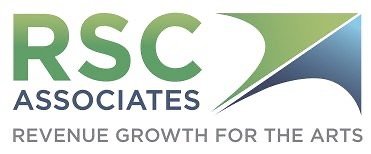WHY RFPS ARE A FRIEND TO NO ONE
With Bob Swaney
I’ll say it right out of the gate: RFPs are a friend to no one. Not to arts organizations, not to their Board or staff, not to the consultants vying for the work, and certainly not to the project’s ultimate success. Yet, many organizations feel bound to this process, thinking it ensures fairness, transparency, and a good outcome. But in reality? It usually does the opposite as RFPs represent a clinical approach to what should be a relationship-based process.
Listen today as we cover five reasons why RFPs fail each of these parties, five best-practice alternatives, and three next steps for any organization that truly wants to find the right fundraising consultant.
Read the full transcript below or click the button to listen.
FULL TRANSCRIPT OF THE PODCAST
Today, we're diving into a topic that’s been the bane of arts administrators and consultants alike: Requests for Proposals, or RFPs.
I’ll say it right out of the gate: RFPs are a friend to no one, not to arts organizations, not to their Board or staff, not to the consultants vying for the work, and certainly not to the project’s ultimate success. Yet, many organizations feel bound to this process, thinking it ensures fairness, transparency, and a good outcome. But in reality? It usually does the opposite. At RSC, we dislike receiving them and responding to them because, at least to us, RFPs represent a clinical approach to what should be a relationship-based process.
Today, we’ll cover five reasons why RFPs fail each of these parties, five best-practice alternatives, and three next steps for any organization that truly wants to find the right fundraising consultant. And as always, I’ll wrap it all up with a single key takeaway, so stick with me.
WHY RFPs FAIL EVERYONE
Let’s first focus on you and your organization. No matter how well-intentioned, an RFP generally won’t provide you with the outcomes you are looking for. Here’s why.
1. They prioritize process over results and relationships. An RFP doesn’t guarantee you’ll find the best partner—it just ensures you go through a drawn-out, bureaucratic process that doesn’t allow for the character of each prospective partner to shine.
2. RFPs create a false sense of objectivity. Scoring rubrics and “blind evaluations” strip away the nuance of finding a consultant who truly fits your culture.
3. They also delay critical work. Fundraising challenges are often urgent, and months-long RFP processes waste valuable time if the pathway is already clear.
4. RFPs assume the organization knows exactly what it needs. Most arts organizations are issuing an RFP because they need expert guidance, yet RFPs force them to pretend they already have the answers.
5. They discourage top firms from applying. The best consultants rarely respond to RFPs, meaning you may only attract firms willing to play the RFP game, not the ones best suited to solve your problem.
Why RFPs Are Bad for the Organization’s Board & Staff
1. They make Board members feel like they’re doing their due diligence when they’re actually just checking a box.
2. They create unnecessary conflict. Board and staff members often have different perspectives on what’s needed, and an RFP forces them to argue over phrasing rather than determining the pathway to outcomes.
3. They add workload without adding value. Writing, distributing, reviewing, and debating proposals consumes hours that could be spent actually fixing the problem.
4. They can drive a wedge between leadership and staff. If a Board unilaterally runs an RFP process without staff input, the eventual engagement may feel imposed rather than collaborative.
5. They limit creative solutions. A rigid RFP prevents consultants from bringing their best ideas to the table.
Why RFPs Are Bad for Fundraising Consultants
1. They make us skeptical. Firms like RSC don’t have time to craft elaborate proposals for engagements they may not win due to subjective review.
2. They strip away the relationship-building process. Fundraising is about trust, and the RFP process often prevents meaningful conversations from happening up front.
3. They sometimes unintentionally focus on price over value. The lowest bidder often wins, not the firm with the best solution.
4. They assume one-size-fits-all solutions. Every client is unique, but RFPs force consultants to fit within a pre-determined structure, therefore stifling their uniqueness.
5. RFPs often go nowhere. Many RFPs get scrapped after the fact because leadership changes or funding priorities shift. Or, the organization came into the RFP process knowing which firm they favored, and they performed an RFP “just to be sure.”
Why RFPs Are Bad for the Project Outcome
1. They often lead to transactional, rather than strategic, partnerships.
2. They force artificial constraints on what a firm can propose.
3. They encourage a “one and done” mentality rather than long-term collaboration.
4. They don’t allow for a true exploration of fit. Successful fundraising requires a deep cultural match, not just a polished proposal.
5. They frequently lead to consultant-client mismatches, wasting time and resources.
FIVE ALTERNATIVES TO RFPs
You might be saying, “Ok, if my organization doesn’t go through an RFP process, then how can we select a firm that is right for us and this discovery project? I’ll give you a handful of alternatives to consider:
1. First, ask for referrals and case studies. Talk to peer organizations about who they’ve worked with and what outcomes they achieved.
2. Next, conduct your own discovery process. Talk to potential consultants before making any commitments, and let them help you shape your project scope. Nothing overly formal. Think “let’s get to know each other.” You are getting to know the culture and character of each firm AND getting a little free advice along the way.
3. Have an open-ended Request for Information (RFI). Instead of rigid requirements, ask consultants how they’d approach your challenge. In other words, let each potential partner submit their information in their own style, language, and format so that you can see how they approach their candidacy rather than how you directed them to do it.
4. Time permitting, pilot a smaller engagement first for your finalist. Before locking into a significant project, engage the consultant for a short-term fundraising assessment or limited coaching project. See if what they said and wrote reconciles with how they actually do the work.
5. Prioritize chemistry and trust. You’re choosing a partner, not a vendor. Take time to ensure they align with your mission and work style.
NEXT STEPS FOR ORGANIZATIONS READY TO HIRE A CONSULTANT
Alright, let’s say you’re ready to scrap the traditional RFP process and move forward with a Request for Information instead. Here’s what’s next:
1. Get clear on your needs, but stay flexible. Define your goals without prescribing a rigid process.
2. Identify three to five firms and have real conversations. Don’t just send documents—schedule exploratory meetings.
3. Move quickly and decisively. Once you find the right fit, engage them without unnecessary delays.
If you remember just one thing from this episode, make it this…
The best fundraising consulting engagements start with relationships, not paperwork. If you want the best outcome for your organization, ditch the RFP and start a real conversation.



